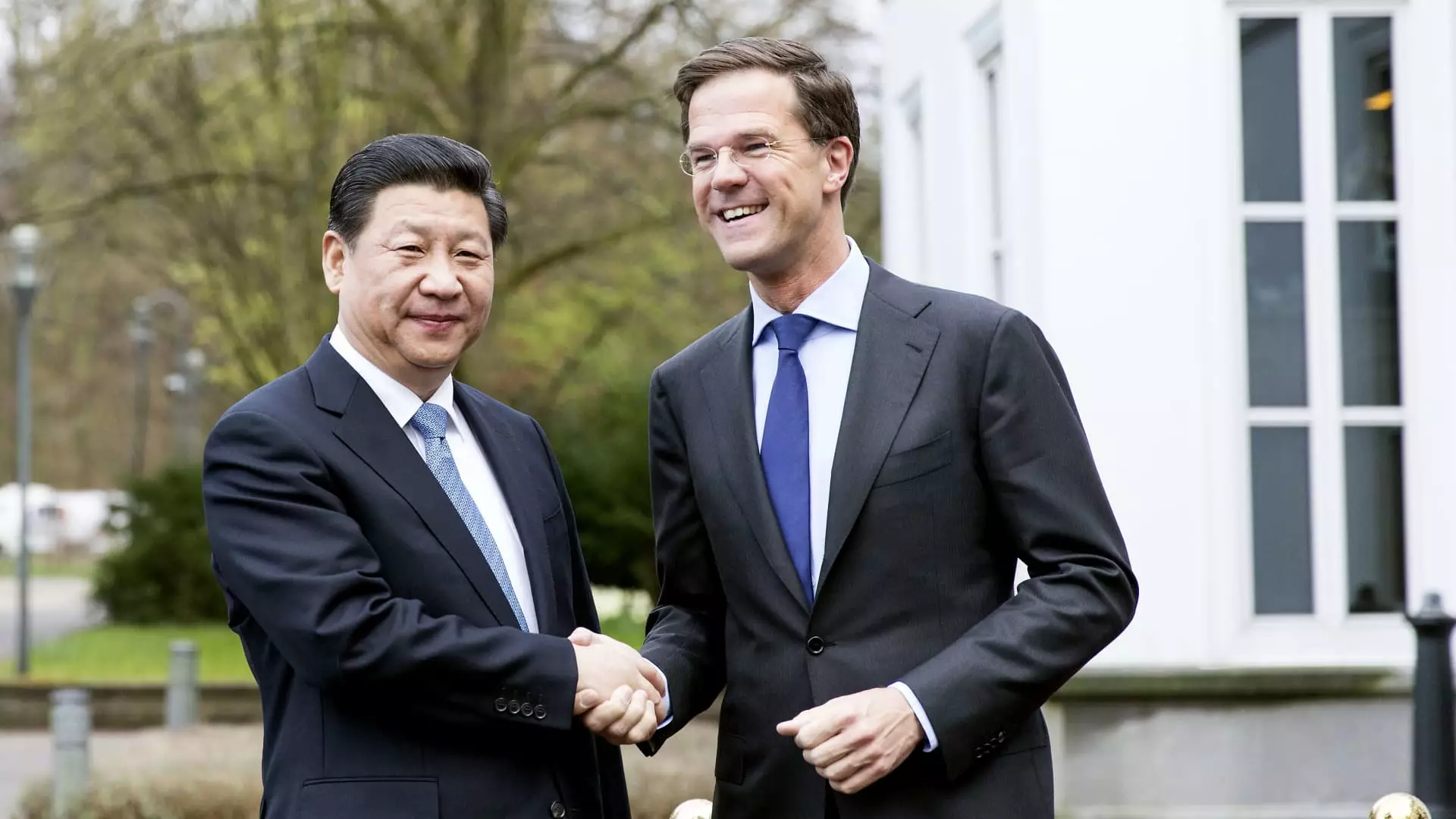Chinese President Xi Jinping emphasized the unstoppable nature of China’s technological progress during a meeting with Dutch Prime Minister Mark Rutte. Xi highlighted the legitimate development rights of the Chinese people, stating that no force can impede China’s scientific and technological advancements. This determination to push forward in the tech sector is crucial for China’s economic growth and global competitiveness.
One of the key areas of discussion between the two leaders was the semiconductor industry. China faced challenges when both the Netherlands and the U.S. blocked exports of advanced chip technology over concerns about potential military applications. This move created a strain in relations between China and the Netherlands. Dutch tech giant ASML, the only company capable of producing extreme ultraviolet lithography machines essential for chip manufacturing, was prohibited from exporting these machines to China. The denial of access to such critical technology hinders China’s ability to enhance its semiconductor capabilities.
President Xi stressed the importance of a win-win approach in international relations, advocating for cooperation rather than creating barriers. He warned against divisive actions that could lead to conflicts and urged the Netherlands to provide a fair and transparent business environment for Chinese enterprises. Xi’s stance on dialogue and collaboration echoes the sentiment that decoupling and disrupting supply chains is not a viable solution in the interconnected global economy.
The Netherlands defended its export restrictions, particularly in the semiconductor industry, with Prime Minister Rutte stating that efforts were made to limit the impact on any specific country. The intention behind these restrictions was to ensure that advanced technologies were not misused for military purposes. However, the challenge lies in balancing national security concerns with fostering innovation and supporting global trade partnerships.
The conflict surrounding export restrictions on critical technologies like semiconductor chips highlights the complex interplay between national security, economic interests, and international cooperation. As China continues its path towards greater technological advancements, it is essential for countries to find a balance between safeguarding sensitive technologies and promoting a conducive environment for innovation and mutual growth. The ongoing dialogue between China and the Netherlands underscores the need for transparent communication and a shared commitment to upholding market principles for the benefit of all parties involved.

Leave a Reply